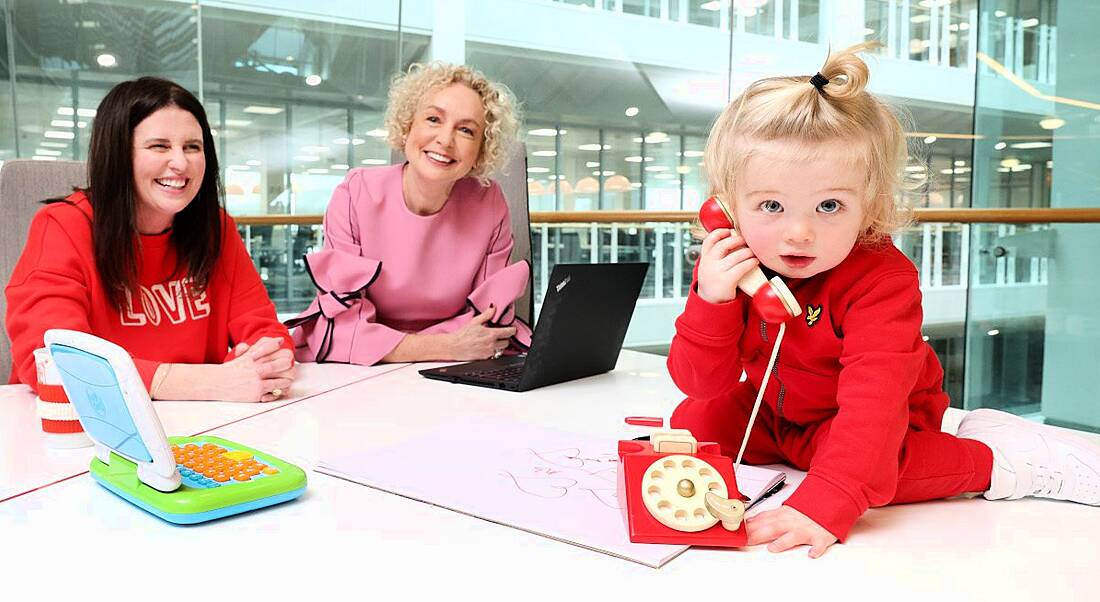New leave policies for Vodafone Ireland employees will cover fertility treatment, pregnancy loss and surrogacy.
Vodafone Ireland is introducing a new fertility and pregnancy policy that includes extended leave for pregnancy loss, fertility treatment and surrogacy.
Primary caregiver parents whose baby is born through surrogacy will now be entitled to 26 weeks of fully paid parental leave, mirroring the company’s maternity leave offering. It will also increase its maternity leave and surrogacy leave offering for full-time and part-time retail employees from 16 weeks to 26 weeks full pay.
All non-birthing and non-primary caregiver new parents will still be entitled to 16 weeks of fully paid parental leave. They can also avail of a six-month period working 80pc of the working week on full pay.
Preparation leave of 10 paid working days will be set aside by the company for prospective parents to attend preparation classes and related appointments.
People undergoing fertility treatment will also be entitled to 10 paid days of leave per year, while the partners of people having fertility treatment will receive two days’ paid leave. Vodafone Ireland has promised that additional flexibility regarding leave will also be offered depending on the employee’s situation.
The new policy also includes 10 days of paid leave for those impacted by pregnancy loss before 24 weeks, whether that occurs to the person, their partner or a surrogate. After that period, full maternity leave applies.
Vodafone Ireland consulted experts from the Rotunda Hospital in Dublin as it developed its new policy. In line with what the experts told the company, it will provide information designed to break down common taboos around surrogacy and fertility to its workers.
Last year, Vodafone made its menopause toolkit available to all employees as part of a bid to dispel taboos around that subject. At the time, Vodafone Ireland CEO Anne O’Leary told SiliconRepublic.com that menopause was “rarely talked about in wider conversations around employee health and wellbeing”.
Commenting on the company’s latest efforts to make its maternity and fertility policies more inclusive for employees, O’Leary said there is an “ongoing commitment to supporting our employees through all life stages”.
“We know the road to parenthood may not be easy and so we have developed these additional policies for our employees here in Ireland. Our approach encompasses both the highs and lows, ensuring we are there for our employees through fertility treatment, pregnancy loss, surrogacy as well as maternity and parental leave,” she added.
“Inclusion for all is a key pillar of our purpose and by creating these enhanced policies, we hope to build a culture of openness and break down the stigma associated with fertility treatment and pregnancy loss.”
Ciara Merrigan, co-founder of Irish Families Through Surrogacy, said that Vodafone Ireland is “taking a leadership role in offering a market-leading surrogacy leave policy for its employees” at a time when there is no specific legislation in Ireland.
“Their policy provides the required flexibility during the surrogacy journey and recognises the need for adequate time off to bond with and care for their child.”
Vodafone Ireland is not the only company looking to offer workers better fertility and parental leave benefits. Pinterest announced that from 1 January this year it would offer its employees a minimum of 20 weeks of paid parental leave, with paid leave for pregnancy loss as well as IVF and egg freezing benefits.
Don’t miss out on the knowledge you need to succeed. Sign up for the Daily Brief, Silicon Republic’s digest of need-to-know sci-tech news.




